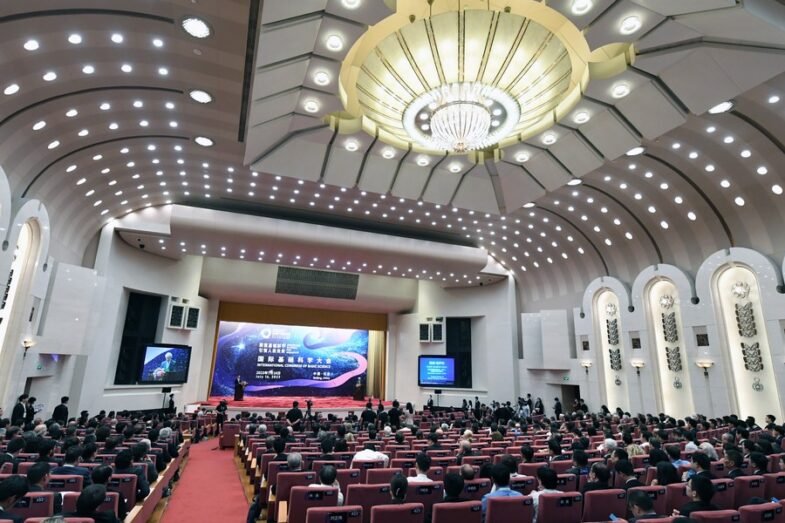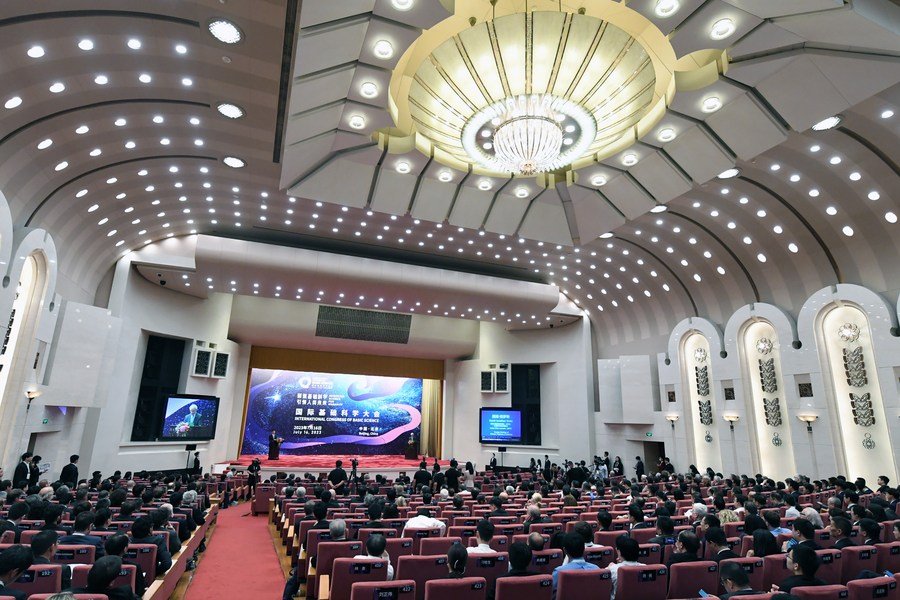Leading experts from various fields are gathered for the two-week event, which aims to encourage collaboration and exchange.

For the first International Congress of Basic Science (ICBS), which begins on Sunday in Beijing, some of the top mathematicians, physicists, and computer scientists in the world will be present.
Leading experts from various fields are gathered for the two-week event, which aims to encourage collaboration and exchange.
In order to discuss, work together, and explore cutting-edge issues in mathematics, theoretical physics, theoretical computing, and the information sciences, three branches of experts are meeting until July 28.
Many of the top researchers present at the congress hold international academic positions.
Some claimed that science had given them the opportunity to travel freely. The statement that “science knows no borders” is confirmed by this.
Scientists express their willingness to overcome barriers and promote a realm of pure cooperation while Western politicians are preoccupied with the rhetoric of “decoupling” or “de-risking.”
Decoupling is difficult today in every way, and it is not in keeping with the times, according to academician of the Chinese Academy of Sciences Xi Nanhua. It will have an effect, but it shouldn’t be overemphasised or given a prominent place in our thoughts.
Russian mathematical physicist and one of the pioneers of quantum group theory Nicolai Reshetikhin said, “Scientists should cooperate and do science together, even though politics can be complicated. Talent is what will make countries powerful in the future.
The event of International Congress of Basic Science is even more significant for exposing young people to the pinnacle of human achievement and for helping them establish clear objectives.
According to John Hopcroft, emeritus professor of computer science at Cornell University, “one of the things your top level government understands is that in the past what makes nations great was oil, gold, or agriculture.” “They think that talent will be the determining factor in the future. Additionally, they are devoted to enhancing education.”
“You should be extremely pleased with the actions taken by your government. They are attempting to improve education in every way possible “said he.
In his opening ceremony keynote address, Fields Medal winner Shing-Tung Yau stated that “basic science is the very foundation of human knowledge.”
We can explore the universe, better understand the world and nature, and advance science and technology thanks to it, according to Yau.
“We develop in an effort to comprehend nature. Thus, we no longer need to be 20 years old when we die and live in trees “said David Jonathan Gross, a recipient of the Nobel Prize.
Recognizing the outstanding accomplishments within the scientific community is an essential component of the congress. The Basic Science Lifetime Award recognises people who have contributed significantly over the previous three decades.
This year, it was given to Adi Shamir, a leading Israeli cryptographer and 2002 Turing Award winner, and David Mumford, an internationally renowned mathematician known for his work in algebraic geometry, computer vision, and pattern theory research.
The Frontiers of Science Award has been given to over 100 academic papers for their cutting-edge research.
